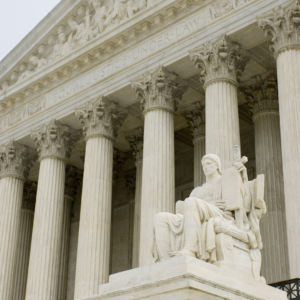Canada’s Supreme Court recently decided to deny accreditation to a top university’s proposed law school simply because its beliefs on sexuality and marriage were too conservative for Canadian culture. Trinity Western University’s “Community Covenant” holds all students to the standard of sex within marriage, which it defines as between one man and one woman.
Canada’s decision should serve as a cautionary tale to Americans. Fortunately, the U.S. Supreme Court’s 7-2 decision in Masterpiece Cakeshop reaffirmed what it had said in Obergefell v. Hodges, that belief in one-man, one-woman marriage is based upon “decent and honorable” premises, and clarified that it is a “protected view and in some instances (a) protected form of expression.”
Congress should now act to ensure that American schools will never face the kind of religious discrimination to which Canada has subjected Trinity Western.
To allow the government to punish a Christian university because its sexual ethics are too conservative would stifle both speech and debate. Under the Obama administration, this nearly happened to Gordon College, a Christian school in Massachusetts that had its accreditation challenged when it sought an exemption from an executive order on sexual orientation.
And in Masterpiece, some Supreme Court justices also came dangerously close to endorsing the kind of religious discrimination that Canada has allowed and that festers in so much of the world.
At last December’s oral arguments in Masterpiece Cakeshop v. Colorado Civil Rights Commission, Justice Sonia Sotomayor told Jack Phillips, the owner of Masterpiece Cakeshop, who has spent 24 years of his life learning to create elaborate custom creations for nuptials, “Then don’t participate in weddings.”
Her belief that Phillips should have to choose between his line of work and religious beliefs is all too familiar to religious minorities around the world. And LGBT activists continue to use laws such as the one in Colorado to punish Americans who hold traditional views of marriage.
Ostensibly, these laws are intended to shield people from discrimination on the basis of sexual orientation. But as LGBT mega-donor Tim Gill has candidly acknowledged, they have added sexual orientation and gender identity to discrimination laws in 21 states and Washington, D.C. to punish the “wicked” dissenters from the new sexual orthodoxy.
Economic discrimination is a cold reality for the more than 75 percent of people around the world who live in countries with high religious restrictions. The children of Dalit Christians and Muslims in India know their children’s horizons are different because of their caste and religion and that they may grow up to do the “dirty jobs” such as cleaning streets and sewers.
In Iran, the government prevents Baha’i members from going to a university and leaves them no path into the sciences, medicine, law and academia. And now in Canada, a Christian who wants to become a lawyer knows that he or she cannot be licensed to practice unless they choose a law school that conforms to Canada’s sexual orthodoxy.
Americans face similar threats in the form of ABA Model Rule 8.4g, which operates as a speech code for lawyers and could be used to discipline them for “misconduct” if they express traditional view on marriage and sexuality, even in social settings.
There is no violent persecution here, as one finds in too many parts of the world, but the prospect of educational and employment discrimination against those who hold minority viewpoints on sexuality is growing.
What began in the wedding industry with bakers, calligraphers, fl
The Supreme Court decisions in Masterpiece Cakeshop and NIFLA v. Becerra signaled to those who want to drag America down the dangerous path of repressive societies around the world — where religious minorities’ gifts and talents alone cannot open doors to economic opportunities — that it won’t be easy.
As Justice Neil Gorsuch wrote in Masterpiece, “It is in protecting unpopular religious beliefs that we prove this country’s commitment to serving as a refuge for religious freedom.”
The rest of the world, including Canada, gets it wrong when they exclude religious minorities from educational and employment opportunities because of what they believe. America has served as a beacon of hope to religious minorities in repressive societies around the world. The Supreme Court ensured that, at least for now, we will continue to do so.

